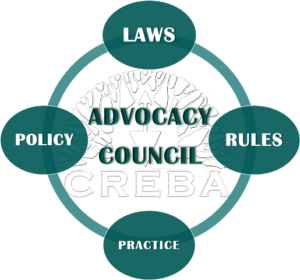Evident in many laws relating to real estate is the underlying presumption that every act of a developer proceeds from avarice. Apparently proceeding from this presumption of guilt, the general trend in these laws has been to impose excessive demands and conditions, as if to penalize the entire housing industry for the perceived faults of a few. RA 6552, otherwise known as the “Realty Installment Buyer Protection Act” or the “Maceda Law”, is one such law.
Perhaps this is not the intent, for it would be wrongful; nonetheless, the language of the law has that effect.
This disheartening stance is difficult to comprehend, given the crucial role that this industry plays as the primary engine of economic growth and social advancement. In particular, members of the housing industry who sell on installment – otherwise known as in-house financing – assume a vital responsibility that the government simply cannot fulfill on its own; using their own funds, they provide the mechanism by which low- and middle-income earners are able to own homes without having to pay the entire purchase price upfront.
For almost 50 years this industry has suffered under the yoke of RA 6652 without complain, conscious of the need to help the millions of homeless poor acquire their own homes. Yet the government itself, seemingly unmindful of this need, continues to throw near impossible obstacles – the latest of which is presidential veto of the VAT exemption for low -income housing, in the very midst of a devastating pandemic.
The wrongful application of the Maceda Law further exacerbates the incalculable losses that this industry continues to suffer due to the economic meltdown ensuing from the COVID pandemic. Given that, it may not be long before the “goose that lays the golden egg” finally expires.
OVERVIEW
There is no quarrel over the conferment of those rights per se. CREBA recognizes that the essence of the law is just and, in the case of low- and middle-income buyers, the ability to exercise those rights is imperative particularly in times of economic distress. However, the language of the law requires rectification, as misinterpretation creates untenable situations of acute prejudice to developers and unjust enrichment of buyers.
Since enactment of the law, there have been many cases filed for causes such as failure on the part of the seller to pay the CSV, incorrect amount of the CSV, incorrect application of the grace period granted by the law, invalid cancelation of the contract, refusal of the buyer to vacate the property, and so on. Also on record are cases centering on whether or not the contract is covered by the law.
The CSV has been the major cause of conflict. In many of those cases, nonpayment or insufficient payment of the CSV was due to the sellers’ contention that they were entitled to offset the rentals that should have been charged, in lieu of installments, for the buyer’s use of the property; whereas the buyers interpreted the provision to mean that they were entitled to the full CSV.
In several other cases, the dispute arose due mainly to misinterpretation of terms used in the law; and in some cases, ignorance of what notarial cancellation means and what it requires.
With the massive volume of delinquencies and defaults arising from the havoc wrought by the COVID pandemic, it is expected that the courts will be swamped with similar cases that could take years to dispose – to the utter detriment of both buyers and sellers.
Yet, this could have been avoided simply by imbuing the law with more clarity and due regard to fairness.
Proposed Amendments
With the foregoing in mind, CREBA proposes immediate amendment of RA 6552. The specific amendments are contained in the proposed legislation formulated by CREBA’s Advocacy & Legislative Affairs Committee.
It is emphasized that the amendments sought are not meant to withdraw the protection afforded to low- and middle-income homebuyers. These are intended primarily to (a) resolve the ensuing inequity and undue bias against sellers; (b) clarify perceived ambiguities and confusing words or phrases, the misinterpretation of which result in costly and time-consuming litigation; (c) minimize the possibility of abuse on the part of buyers and sellers; and (d) incorporate the Supreme Court’s interpretations in pertinent cases, so that neither buyer nor seller would have to pore through jurisprudence to be enlightened.
In general, these amendments cover the following:
- Definition of terms;
- Coverage of the law;
- Cash surrender value;
- Ceiling on delinquency fees;
- Assignment of rights by the buyer;
- Penal clause; and
- Syntax.


